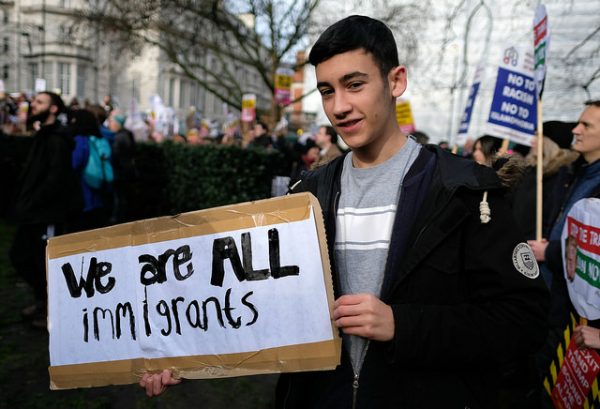
Politicians, pundits, and critics in Germany, England, and the Netherlands have recently advocated for harsher restrictions on migrants’ access to social assistance in their countries. This has led scholars to evaluate whether increased immigration is eroding historically strong support for welfare in Europe.
Earlier in the decade, the answer seemed clear. Drawing on basic public opinion data from various European countries, scholars found that rising immigration levels preceded a spike in favorability for restrictive welfare laws. More recent and sophisticated analyses, however, suggest that a rise in restrictive welfare attitudes is not directly connected to increasing immigration. Rather, this relationship appears to be better explained by a combination of factors such as national economic conditions, political ideology, individuals’ self-interest, and prejudice towards racial and ethnic minorities.
- David Brady and Ryan Finnigan. 2014. “Does Immigration Undermine Public Support for Social Policy?” American Sociological Review 79(1): 17-42.
- Jan Mewes and Steffen Mau. 2013. “Globalization, Socio-Economic Status and Welfare Chauvinism: European Perspectives on Attitudes toward the Exclusion of Immigrants.” International Journal of Comparative Sociology 54(3): 228-45.
- Maureen A. Eger and Nate Breznau. 2017. “Immigration and the Welfare State: A Cross-Regional Analysis of European Welfare Attitudes.” International Journal of Comparative Sociology 58(5): 440-63.
- Alexander W. Schmidt-Catran and Dennis C. Spies. 2016. “Immigration and Welfare Support in Germany.” American Sociological Review 81(2): 242-261.
- Daniel Degen, Theresa Kuhn, and Wouter van der Brug. 2018. “Granting Immigrants Access to Social Benefits? How Self-Interest Influences Support for Welfare State Restrictiveness.” Journal of European Social Policy 1(1): 1-18.
This work shows that social attitudes about welfare are complex and linked to a variety of factors. Though critics of immigration in Europe have been vocal, it is unclear exactly whether and how attitudes about immigration and migrants relate to beliefs about welfare.

Comments